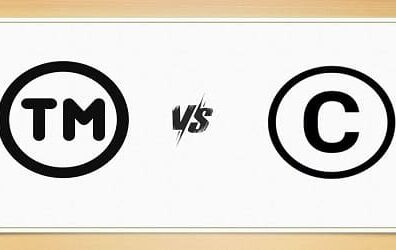Unlocking the Potential: Understanding One Person Company (OPC) under Companies Act 2013

Introduction
In the dynamic landscape of business, the Companies Act, 2013 introduced a revolutionary concept known as the One Person Company (OPC). This innovative business structure is designed to empower solo entrepreneurs, providing a unique avenue for them to establish and operate their businesses.
Ministry of Corporate Affairs vide its G.S.R. Notification No. 250(E) dated 31st March, 2014 notified for formation of One Person Company. As per section 2(62) of the Companies Act, 2013, “One Person Company” means a company which has only one person as a member.
One Person Company or OPC is a business incorporated by a single person. Previously, in order to incorporate a Limited Liability entity atleast two persons were required. But this all changed by the introduction of the concept of an OPC.
One Person Company Vs Sole Proprietorship
Sl No. | One Person Company | Proprietorship Concern |
1 | Separate Legal entity | Not a Separate Legal Entity |
2 | Limited Liability | Unlimited liability |
3 | Perpetual succession | No Perpetual succession |
4 | Loan not the sole responsibility of the owner | Loan-sole responsibility of the owner |
5 | Registration required | Registration not required |
Key Features of One Person Company
The key features of One Person Company are as follows:
- Sole Ownership: OPC allows a single individual to own and manage the entire business, providing complete control and decision-making authority.
- Limited Liability: One of the significant benefits is the limited liability protection, ensuring that the personal assets of the owner are separate from the business liabilities.
- Perpetual Existence: OPC enjoys perpetual succession, meaning the business continues to exist even in the absence or demise of the owner, ensuring smooth transition and inheritance.
- Single Director: OPC requires the appointment of atleast one director who takes charge in case the sole owner becomes incapacitated.
Advantages of Incorporating One Person Company
The advantages of One Person Company are as follows:
- Only One Member: Unlike a Private Limited Company an OPC does not requires minimum 2 directors or members. Only one member is enough to incorporate and run the business.
- Separate Legal Entity: An OPC is a separate legal entity from the persons forming it. The ownership can be distinguished from its management unlike in other business forms.
- Limited Liability: The liability of an OPC is not the liability of its member.
- Special Privileges: In comparison to other companies there are various benefits and privileges available to an OPC.
- Easy Transferability: In case you wish to transfer your business, you can easily do in this incorporated business model unlikely in case of proprietorship or a traditional partnership.
Disadvantages of Incorporating One Person Company
The disadvantages of One Person Company are as follows:
- An OPC is only suitable for a small business. For further expansion of business and raising more capital new members need to added which is not possible.
- An OPC cannot carry out NBFC activities nor it can invest in securities of any company. It also cannot carry out activities for charitable purposes.
- Since the sole member can be the director, the line between ownership and control is blurred, which might result in unethical business practices.
Privileges to One Person Company
The privileges enjoyed by an OPC are as follows:
Sl No. | Section | Description |
1 | 2(40) | One Person Company is not required to include cash flow statement in its Financial Statements. |
2 | 67(2) | Financial assistance can be taken by the member from the OPC for purchase of or subscribing to its own shares |
3 | 92(1) | The annual return shall be signed by the company secretary, or where there is no company secretary, by the director of the company. In other words it need not be signed by a company secretary in practice |
4 | 96(1) | Need not hold annual general meeting |
5 | 121(1) | Need not prepare a report on Annual General Meeting |
6 | 122(1) | The provisions of section 98 and sections 100 to 111 of Chapter VII shall not be applicable to One Person Company |
7 | 122(3) | For any business which is required to be transacted at an annual general meeting or other general meeting of a company by means of an ordinary or special resolution, it shall be sufficient if, in case of One Person Company, the resolution is communicated by the member to the company and entered in the minutes-book required to be maintained under section 118 and signed and dated by the member and such date shall be deemed to be the date of the meeting for all the purposes under this Act. |
8 | 122(4) | Where there is only one director on the Board of Director of One Person Company and any business is required to be transacted at the meeting of the Board of Directors, it shall be sufficient if, in case of such One Person Company, the resolution by such director is entered in the minutes-book required to be maintained under section 118 and signed and dated by such director and such date shall be deemed to be the date of the meeting of the Board of Directors for all purposes under this Act. |
9 | 134(1) | Financial statement and Board report can be signed only by one director. |
10 | 134(3)(p) | An OPC need not prepare a statement indicating the manner in which formal annual evaluation has been made by the Board of its own performance and that of its committees and individual directors. |
11 | 134(4) | In case of One Person Company, Board report shall mean only a report containing explanations or comments by the Board on every qualification, reservation or adverse remark or disclaimer made by the auditor in his report. |
12 | 137(1)(Third proviso) | File a copy of the financial statements duly adopted by its member, along with all the documents which are required to be attached to such financial statements, within 180 days from the closure of the financial year. |
13 | 149(1) | One person company need not to have more than one director on its Board. |
14 | 149(4) | Need not to appoint Independent directors on its Board |
15 | 152(6) | Retirement by rotation is not applicable. |
16 | 164(3) | Additional grounds for disqualification for appointment as a director may be specified by way of articles. |
Restrictions on One Person Company under Rule 3 of Companies (Incorporation) Rules, 2014
The restrictions of One Person Company as given in Rule 3 of Companies (Incorporation) Rules, 2014 are as follows:
- Only a natural person who is an Indian citizen and resident in India is eligible to be a member and nominee of a One Person Company.
- A person shall not be a member of more than a single One Person Company at any point of time and the said person shall not be a nominee of more than a single One Person Company.
- If a person being member in One Person Company in accordance with this rule becomes a member in another such Company by virtue of his being a nominee in that One Person Company, such person shall meet the eligibility criteria specified in sub rule (2) within a period of one hundred and eighty days.
- A minor is not eligible to become a member or nominee of One Person Company and cannot hold share with beneficial interest in any OPC.
- OPC cannot be incorporated as a Section 8 Company or converted into one.
- OPC cannot carry out Non-Banking Financial Investment activities including investment in securities of any other body corporates.
- An OPC is mandatorily required to convert itself into a Private Limited company within six months of reaching a paid up share capital of Rs 50 Lakhs or where its average annual turnover crosses Rs 2 crore.
Incorporation Process of One Person Company
For incorporation of One Person Company following steps are involved:
- Procuring Digital Signature Certificates: The first step is to procure the Digital Signature Certificates (DSCs) of the Subscribers and the Proposed Directors.
- Name Reservation: File Spice + Part A to reserve the name for company incorporation. The name should comply with the guidelines set by the Ministry of Corporate Affairs.
- Prepare Incorporation Forms: Prepare and submit incorporation forms i.e. Spice + Part B, Spice + AOA, Spice + MOA, Agile Pro and INC-9 to the Registrar of Companies (ROC).
- Certificate of Incorporation: Upon verification of the above-mentioned forms, the ROC issues the Certificate of Incorporation, officially recognizing the OPC as a legal entity.
Important Statutory dates
The following dates are relevant for various One Person Company filings:
- The last date for submitting financial statements in E-Form AOC-4 for a particular Financial Year is 27th
- The last date for submitting annual returns in E-Form MGT-7A for a particular Financial Year is 28th
- The Income Tax Return has to be filed by 30th September or any other date as notified by the government.
In case E-Forms AOC-4 and MGT-7A are not filed within the due date, then penalty of Rs 100 each day is imposed for each day during which the default continues.
Conclusion
In conclusion, the One Person Company under the Companies Act of 2013 is a groundbreaking concept tailored for solo entrepreneurs. It combines the benefits of limited liability with the simplicity of sole proprietorship, offering a conducive environment for business growth. Understanding the incorporation process and compliance requirements is essential for harnessing the full potential of this unique business structure.
By embracing the OPC model, entrepreneurs can embark on their business journey with confidence, knowing that they have a legal framework that supports their growth and protects their interests.
Follow Us
Keep Yourself Updated By Following Us




